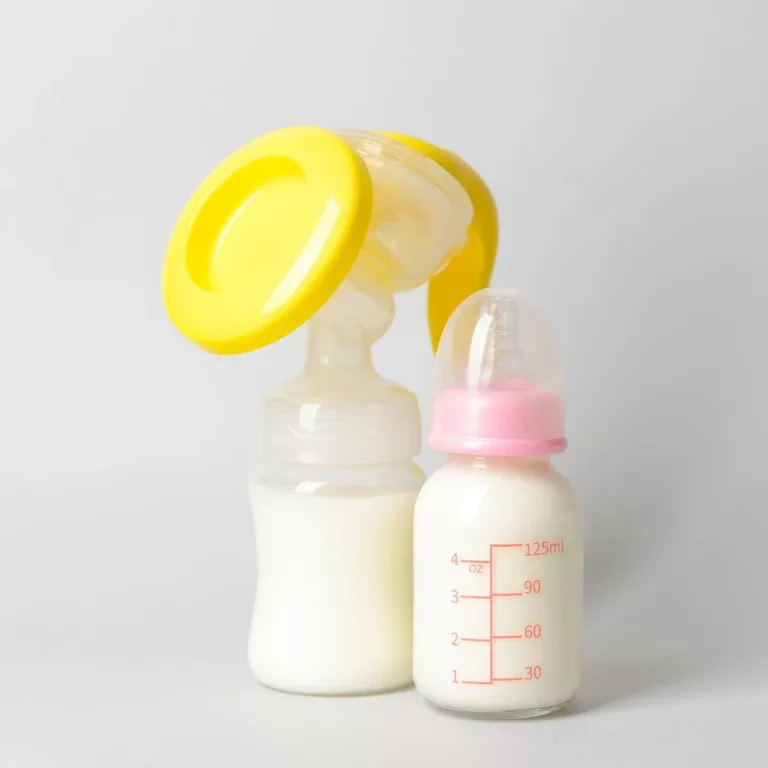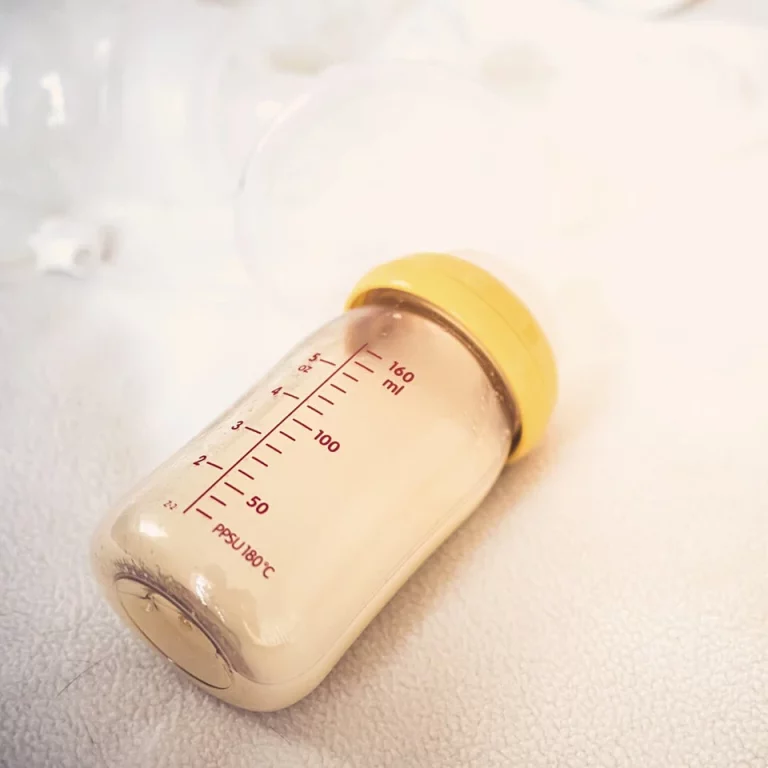How Many Lactation Cookies Should I Eat?
Many moms on their breastfeeding journey wonder, “How many lactation cookies should I eat in a day to increase breast milk supply?” The answer is zero. Yes, you read that correctly. Lactation cookies are not scientifically proven to increase breast milk production.
There are no proven benefits of lactation cookies. One website even claimed that eating too many lactation cookies could lead to an overproduction of breast milk. This is factually inaccurate and not true at all. Frequent nursing can lead to an overproduction of breast milk. Too many lactation cookies could lead to weight gain, interaction with certain medications, and a worsening of glycemic control.
Lactation Bars & Lactation Snacks Are Unlikely To Help Increase Breast Milk Supply
Lactation cookies are not a great way to increase breast milk production. The best way to increase low milk supply is to increase the frequency of breast feeding or pumping. This can be really challenging for new moms because frequent nursing is very challenging. Breast milk production is heavily dependent on the production of prolactin. Prolactin levels increase when the breast is stimulated by breastfeeding or when using a breast pump.
How Often Should You Eat Lactation Cookies?
Because they are unlikely to help breast milk production, you should only eat lactation cookies if you like the way they taste and they are appropriate for your diet. If you are someone who is sensitive to the ingredients in lactation cookies then do not eat them at all. If you enjoy the way they taste, then you can eat them one or two times a day. Be mindful of the high amount of calories in some of these cookies as this can lead to unwanted weight gain.
There is no scientific proof that lactation cookies increase breast milk supply. If you enjoy these cookies as a part of your daily routine, then it is fine to eat them. If you are eating lactation cookies in hopes for an increase in breast milk supply, you may find yourself disappointed.
However, if you like the way lactation cookies taste or you feel that they have personally helped you, there is little harm in eating them. Be sure to monitor your caloric intake and be sure that you are also getting enough nutrients through a prenatal vitamin as well. Additionally, some supplements can interact with other medications so it is important to check with your doctor before consuming high volumes of a certain supplement.
Main Ingredients In Lactation Cookies
Let’s take a look at some of the main ingredients in lactation cookies. This will help you to understand why they are so popular and how they are different from regular cookies. Remember that these claims are largely anecdotal. Anecdotal means it may work for one person but not another. It is important to note that scientific evidence supporting their effectiveness is limited.
Fenugreek
Fenugreek is an herb often recommended to boost milk supply. Some studies suggest it may have a positive effect, although the evidence is mixed. It is available in capsule form or as a tea.
Blessed thistle
Blessed thistle is another herb that is sometimes used to promote milk production. Like fenugreek, the evidence supporting its effectiveness is limited and mixed.
Fennel
Fennel is an herb that has been traditionally used to support breastfeeding. It is believed to have galactagogue properties that can potentially increase milk supply. However, scientific studies are lacking, and its effectiveness has not been conclusively proven.
Brewer’s Yeast
The evidence regarding the effectiveness of brewer’s yeast in increasing breast milk production is limited, and more research is needed to establish a clear connection between brewer’s yeast consumption and increased milk supply.
Brewer’s yeast is a type of yeast that is rich in B vitamins, protein, and minerals such as chromium and selenium. Some anecdotal reports and traditional beliefs suggest that brewer’s yeast may have galactagogue properties, meaning it can potentially stimulate milk production. However, the scientific evidence supporting this claim is lacking.
Alfalfa
Alfalfa is a plant that contains various nutrients, including vitamins, minerals, and phytoestrogens. Some traditional beliefs suggest that these components may have lactogenic properties. However, there is a lack of rigorous scientific studies specifically examining the impact of alfalfa on breast milk production.
Without substantial scientific evidence, it is challenging to conclusively establish alfalfa as a reliable galactagogue. Individual responses to alfalfa may vary, and its effectiveness in increasing milk supply can differ from person to person.
Flaxseed & Flaxseed Oil
Related: Postpartum Rib Pain
Flaxseed is a rich source of omega-3 fatty acids, fiber, and lignans, which are plant compounds with potential health benefits. Some studies have suggested that the omega-3 fatty acids and lignans in flaxseed may have hormonal effects that could influence lactation. However, the research specifically focused on flax seeds impact on breast milk production does not show that it increases the production of breast milk
If you want to see if some of these supplements may help you, you can try to make your own lactation cookies or look for cookies with these specific ingredients. Remember that even these key ingredients when combined are still not likely to result in an increase in breast milk production. It is important to talk to a certified lactation counselor if you need help as a nursing mother.
How Many Extra Calories Does A Breastfeeding Mom Need?
Breastfeeding mothers require additional calories to support the production of breast milk and meet their nutritional needs. The exact number of extra calories needed can vary depending on various factors, including the mother’s body weight, activity level, and the age of the baby. However, on average, it is generally recommended that breastfeeding moms consume an additional 300 to 500 calories per day.
If eating lactation cookies is making you go beyond this and you are not seeing a change in your breast milk supply, you may want to reduce the amount of cookies you are eating. Eating far beyond 500 extra calories than you normally do while breastfeeding can lead to unwanted weight gain during this time.
Using Lactogenic Foods As A Nursing Mom
At the end of the day, the evidence behind lactogenic foods is very limited. Even nutrient-dense cookies packed with the ingredient list above is unlikely to make a difference. Any increase that you may perceive in your milk supply is likely to be coincidental and not directly related to eating homemade lactation cookies.
Why Breastfeeding Mothers Should Not Rely On Lactation Cookies To Boost Milk Supply
It would be great if there was an easy way to boost milk production through yummy cookies. Unfortunately, there is no proven supply that will lead to a significant increase in breastmilk supply. Let’s take a look at why even the “best lactation cookies” are unlikely to be helpful.
Insufficient Evidence
While some individual ingredients found in lactation cookies have been associated with potential lactation benefits, there is limited scientific evidence to support the overall effectiveness of lactation cookies in increasing milk supply. Many of the claims about these cookies are based on anecdotal evidence rather than rigorous scientific research.
Varied Composition
Lactation cookies are not standardized products. This means that the composition of each cookie can vary significantly between brands and recipes. One lactation cookie recipe may be very different from another. This lack of standardization makes it difficult to determine the precise quantity and quality of ingredients that would be necessary to have a notable impact on milk supply.
Individual Variation
Breast milk supply is influenced by numerous factors, including hormonal regulation, baby’s demand, breastfeeding technique, and maternal health. What works for one person may not work for another, as individual variations play a significant role in milk production. Thus, what may be effective for one breastfeeding mother might not have the same effect on another.
Importance Of Comprehensive Approach
Increasing breast milk supply is a complex process that involves a combination of factors, including frequent and effective breastfeeding or pumping, proper hydration, nutrition, rest, and overall maternal well-being. Relying solely on lactation cookies without addressing other aspects may not yield significant results.
Unwanted Side Effects
While most ingredients in lactation cookies are considered safe for consumption, it’s important to be cautious about potential allergies or sensitivities to certain components. Additionally, excessive consumption of lactation cookies, which are often high in calories and sugar, may lead to weight gain or other health concerns. Especially in women who may be more prone to disease like diabetes, unnecessary consumption of sugar through lactation bites or lactation cookies may be detrimental to your health.
How Many Lactation Cookies Should I Eat: Summary
If you are eating lactation cookies or supplements in hopes of truly increasing your breast milk supply, then you will likely be disappointed. However, if you enjoy the way lactation cookies taste, then there is no harm in having 1 to 3 a day. Be mindful of how much sugar and carbs they have so that they do not cause you to gain unnecessary weight.
Unfortunately, there is no healthy snack or tasty way to make more breast milk.
Increasing breast milk production largely relies on increasing the frequency in which you direct feed or pump milk. The scientific process has to do with a feedback loop related to the hormone prolactin. The common ingredients in lactation cookies have limited evidence in boosting milk supply. While they are unlikely to be harmful, they are also very unlikely to be helpful.
If you are having difficulty with your breast milk supply, talk to a lactation consultant who can help you with scientifically proven ways to increase breast milk production.
We discuss products we think are useful to people. If you buy something through our links, we may earn a commission. Remember to check with your personal physician to see if a product recommended is right for you.








